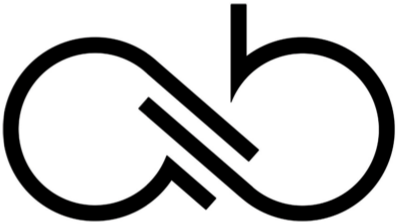What Coaching Is And Why You Should Hire One
It's hard to ignore all the noise about coaching. You will hear a lot of people refer to themselves as a coach. Today I want to unpack this so you can be clear about if or why you would hire a coach to support you with your personal or professional goals.

I will begin by talking about some of the misinformation and confusion about the coaching industry. If you are considering hiring a coach, there are a few things you need to check and verify before you jump right in.
Not everyone is a coach or can claim to be a coach. If you are working with someone and your coach is telling you what to do and when to do so, they are not a coach. We have enough people in our lives dishing out (mostly unwanted) advice, and no one is qualified to tell you what to do or how to go about your life.
If the coach you have hired gives you advice, tools and resources that help you achieve a goal, then consider that they are a mentor because they have experience and expertise in a specific field to help clients get ahead. In this instance they may suggest an approach or give you valuable advice or share best industry practices, tools and resources. Examples of this may be professional services like a business consultant, a nutritionist specialising in a modality or a personal trainer, who can help you increase your muscle mass. All this is perfectly fine, as long as you have agreed to be mentored as part of your agreement.
What Coaching Is Not
Coaches support their clients in finding their own answers and choosing what works best for them in collaborative and agreed partnerships. They do not support excuses, negativity or destructive behaviour, but... coaching is not a bootcamp or a military style operation where you take orders from a superior.
Coaching does not instruct, give demands or shout commands. If you find yourself in that space with someone calling themselves a coach, it may be time to reevaluate the relationship.
Coaching is NOT
- Mentoring. Although a coach may have specialist knowledge in a specific field and choose to mentor a client as a more appropriate means of assisting. The client needs to be made aware of this and give permission beforehand or when the coach asks permission in a session
- Helping. Your progress and shifts are indirect but your coach will not help you or give you the answers or dictate what you should or shouldn't do and they will always ask for permission to share observations or tools and resources with you if or when it is appropriate to do so
- Pushing a specific agenda or an outcome. Especially when it's not your agenda, goals or ideas. In coaching, you decide what you want to be coached on
- A chit-chat session. Sharing of information, opinions or titbits is best left for outside the designated coaching session. A paying client can insist on using the session for themselves and during that time may ask for help or give permission for a coach to share something
- Giving commands. Telling a client what to do or not do or making demands is not coaching. A coach-client partnership is a safe space for client and coach to interact and find the best methodology to help a client succeed to achieve their chosen goals
- Prescriptive. In any way. The only agenda on the table is that of the client’s
- Public domain. The coach-client relationship is sacred and confidential and any shared information will be discussed and agreed upon between client and coach
- A one-way conversation. You, the client will talk 80% of the time and the coach will listen and ask questions 20% of the time. Both client and coach agree to be and are open to receive feedback or share observations
- Stiff, unfriendly, rigid or inflexible. Coaching is fun and kicking goals need to be celebrated and coaching sessions that are focused on processes or procedures, rather than client needs and goals is not deemed as coaching
- A casual arrangement. Coaching is based on agreed structured paid sessions, which a coach keeps record of for the purpose of insurance and auditing and the coach may use their own specific framework for the session
- And lastly, your coach will not do the work for you. Their role is to support you to achieve your goals and for you to explore avenues for personal or professional fulfilment
The coaching process is specifically designed to support you in finding your own answers and solutions. Someone else cannot know you, appreciate fully your circumstances or truly understand your hopes dreams or aspirations as well as you do.
The process supports you in finding the resources and answers for yourself and holds a safe space for you to uncover these in partnership with your coach.
Coaches listen actively and deeply with awareness without interrupting you. They ask inquiry-type questions because this supports you in finding solutions that will work for you.
Good coaches are free of agendas, unattached to any outcomes or results because you, the client is a whole person, who is responsible for your own choices.
Coaches may also use awareness tools or embodiment tools like visualisation, breathing or meditation and many other techniques to tap into your whole-person wisdom. And they may do this to help you break through fear or anxiety or to get you in the presence of joy and excitement.
Coaches are clear about the nature of your relationship upfront and what they will or will not do or provide. All aspects and nature of their coaching, including how much they charge, will be clearly defined in an agreement entered into with you the client before you begin your coaching journey.
They may choose to offer coaching combined with mentoring services and share their expertise, but that will be agreed upon before you begin.
It's worth mentioning that all great coaches work with their own great coaches too. A good example is professional sports people, who often have multiple coaches. They may have a performance coach, a strength and conditioning coach, a motivational coach and a raft of other professionals to get them to and stay on top of their game.
Expect Your Coach To Ask Questions That Help Them Understand
- Your commitment, accountability and level of responsibility to do the work that may be required
- If you are ready, willing, able to proceed
- Any barriers or obstacles that may impede your progress
- If you are self-driven and clear about what you want to work on
- If they are the right coach for you at this stage or if you need to be referred to another professional like a doctor, specialist, psychologist or a different coach with specific expertise. It may also be that your situation calls for someone else to work either alongside your coach to help you move ahead
Reflecting
Coaching is also about reflection. They may ask for permission to reflect back to you what they hear you say and what they observe in the moment. Good coaches also use reflection themselves on what worked or what did not in the session to fascilitate their own growth and learning. Your coach will encourage you to reflect on what is happening or what happened since you last met. Your coach may also ask you for feedback on their coaching style or how you find the sessions.
A Definition by the ICF (International Coaching Federation)
The ICF defines coaching as "partnering with clients in a thought-provoking and creative process that inspires them to maximise their personal and professional potential. The process of coaching often unlocks previously untapped sources of imagination, productivity and leadership.
We all have goals we want to reach, challenges we’re striving to overcome and times when we feel stuck.
Antoinette Barnardo Coaching Newsletter
Join the newsletter to receive the latest updates in your inbox.

